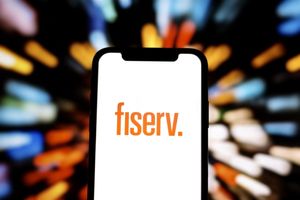5 Questions to Ask a Potential New Employer
At the end of a job interview, an interviewer will usually take a moment to ask if the candidate has any questions for them. Potential employees who decline to ask questions can miss out on a lot of crucial details. Interviews aren’t a one-way street. Just as a prospective employer asks questions to decide a candidate’s fitness for the position, candidates have a chance to assess whether this is the right opportunity for them. Here are some of these questions that can be helpful to ask.
What does a typical day in this role look like?
While the job description generally covers the overall responsibilities, it rarely states how much of a day is usually dedicated to each task. For instance, the role may include compiling competitor analysis reports, email marketing, and copywriting. But upon asking, prospective employees may find out that copywriting is the core daily task, while email marketing campaigns and competitor analysis are only needed once every quarter. If there are specific duties prospective employees hope to get more experience with, this question can help clarify whether that will be possible.
Why has this position become available?
Sometimes the role may be newly created to meet a need for expertise in a certain area. In other cases, the previous employee might have been promoted, transferred, or may have left the company. Usually, the employer will be honest about the circumstances of someone’s departure even if they don’t offer much detail. But if they hedge or stall for time, candidates may want to check out what current and former employees have to say about the company on popular employer review sites. Candidates replacing someone who exited the company can also ask follow-up questions about how long previous employees have held the position – high turnover may be an indicator of few growth opportunities or a difficult working environment.
What kind of benefits does the company offer?
This can be an important question to ask at a later stage or even after receiving a job offer. Prospective employees will want to know upfront if the employer offers good health insurance, dental, a retirement plan, life insurance, and more.
When discussing benefits, an employer might take this opportunity to discuss other perks such as flexible hours, work-from-home options, stock options, catered meals, and tuition reimbursement.
What are some of the challenges associated with this role?
This is another question to get information that wouldn’t be in the job description. Some challenges are more commonplace than others, for instance: budget constraints, outdated technology, or a short-staffed team. On the other hand, this question may also get an employer to volunteer information about internal politics or conflict between teams. This question can help prospective employees get an insider’s opinion on possible obstacles; it also provides an opening to talk about how they’ve dealt with or resolved similar issues in the past.
How is success measured in this role?
Asking how success is measured will let potential employees know what factors the employer will consider when determining a candidate’s eligibility for promotions or new opportunities. Depending on the industry, the metrics might be more or less straightforward. Asking this can help prospective employees know what to focus on during the first few months of the job and get an idea of whether advancing in the role involves concrete metrics.
Tips to help get the most out of an interview
It’s not enough to ask the right questions, a lot depends on how the questions are asked as well as timing. Here are some tips to help make the process more seamless:
- Always approach with curiosity: While interviewees might ask some questions to show they’ve done their research about a company, in general, interviewees don’t want to ask questions simply to ask them. Questions—particularly ones that might be tough to answer—should come from a place of curiosity and openness.
- Ask relevant, professional questions only: While an interviewer may volunteer personal details, often in an attempt to create a friendly atmosphere and break the ice, in general it’s not a good idea to ask an interviewer any personal questions. It can be appropriate to ask about their education if it is relevant to the discussion.
- Pay attention: On a phone call or video call, it can be easy to lose track of what the interviewer is saying—but paying attention is non-negotiable. Knowing what has already been said helps candidates avoid repetitive questions and enables them to ask relevant follow-up questions where needed.
Contact:
Don Klein,
1-800-323-7033
Contact Information:
Name: Keyonda Goosby
Email: keyonda.goosby@iquanti.com
Job Title: Consultant
More News
View More



Recent Quotes
View More
Quotes delayed at least 20 minutes.
By accessing this page, you agree to the Privacy Policy and Terms Of Service.